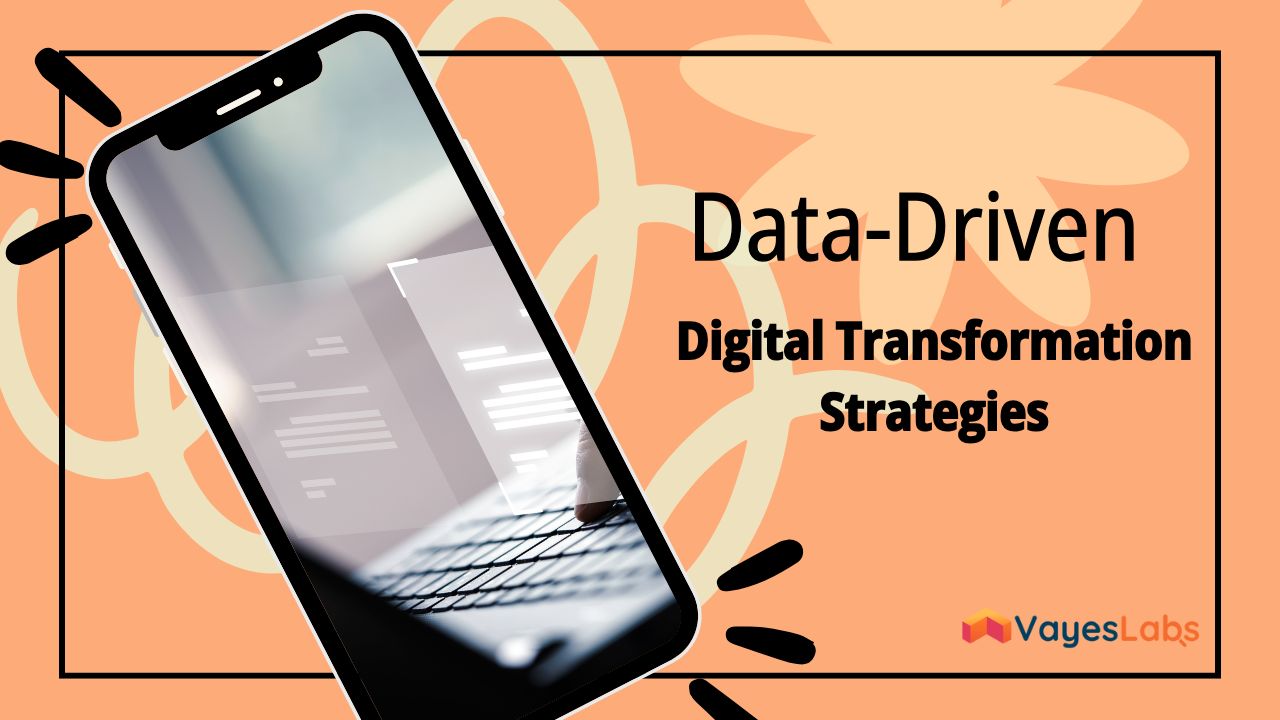Table of Contents
-
What is Data-Driven Digital Transformation?
-
The Importance of Data-Driven Approaches for Businesses
-
Data-Driven Digital Transformation Strategies
-
Industries Applying Data-Driven Transformation
-
Challenges of Data-Driven Strategies
-
The Future of Data-Driven Digital Transformation
Digital transformation refers to businesses leveraging technology to reshape their processes, customer experiences, and operations. However, for this transformation to be effective, a data-driven approach is essential. Data analytics enables businesses to optimize decision-making, better understand customer needs, and achieve a competitive advantage. In 2025, technologies like big data and artificial intelligence are at the core of data-driven digital transformation strategies.
Data has become the most valuable asset for modern businesses. Data-driven strategies allow companies not only to analyze past performance but also to predict future trends and anticipate customer behaviors. This article explores how data-driven approaches make a difference in digital transformation, which strategies can be implemented, and the challenges businesses may face in this process.
What is Data-Driven Digital Transformation?
Digital transformation involves businesses modernizing their business models and processes using technology, while data-driven digital transformation refers to using data as a strategic asset in this process. Technologies such as big data, artificial intelligence, and machine learning enable businesses to collect, analyze, and act on data, leading to more informed decisions.
Data-driven digital transformation allows businesses to integrate customer, operational, and market data to deliver personalized solutions, optimize processes, and create new revenue streams. For example, a retail company can analyze customer purchase histories to create personalized campaigns, or a manufacturing firm can use machine data for predictive maintenance.
Data Collection: Businesses gather data from various sources.
Data Analysis: Analytical tools transform data into meaningful insights.
Actionable Insights: Data-derived insights are used for strategic decisions.
Continuous Improvement: Data-driven processes enable ongoing optimization.

The Importance of Data-Driven Approaches for Businesses
In 2025, data-driven approaches are becoming the key to success in digital transformation. Strategic use of data enables businesses to make faster, more informed, and more effective decisions. Data-driven businesses gain the following advantages:
Competitive Advantage: Data-based decisions position businesses one step ahead of competitors.
Customer Satisfaction: Personalized experiences increase customer loyalty.
Efficiency: Data analytics identifies inefficiencies in processes, reducing costs.
Innovation: Data guides the development of new products and services.
For example, a logistics company can optimize delivery routes by analyzing data, saving both time and fuel. Similarly, a financial institution can use big data analytics to more accurately assess customer risk profiles.
The importance of data-driven approaches is not limited to large enterprises. Small and medium-sized businesses can also use data analytics tools to track market trends, understand customer needs, and improve operational processes. By leveraging data, businesses of all sizes can enhance their agility and responsiveness in dynamic markets.
Data-Driven Digital Transformation Strategies
Data-driven digital transformation strategies require businesses to effectively use technology and data. Below are key strategies that businesses can implement, explained in detail:
Data Infrastructure Development: Businesses must establish a robust infrastructure for data storage and processing. Cloud computing solutions offer flexibility and scalability in this process.
Data Integration: Data from various sources is combined using integration tools to create a holistic view.
Advanced Analytics Adoption: Artificial intelligence and machine learning are used to extract deep insights from data.
Real-Time Analytics: Real-time data analysis enables businesses to make instant decisions.
Data Security: Cybersecurity measures and compliance with data privacy regulations are foundational to data-driven strategies.
Cultural Transformation: Employees’ data literacy skills must be enhanced, and a data-driven culture adopted.
For instance, an e-commerce platform can use real-time analytics to monitor customer behavior and offer instant promotions, boosting sales. Additionally, cloud-based data storage solutions make it easier for businesses to access data from anywhere.
Industries Applying Data-Driven Transformation
Data-driven digital transformation is enhancing efficiency across various industries and creating new opportunities. Here are some industries applying this transformation:
Retail: Data analytics analyzes customer habits to create personalized marketing campaigns.
Healthcare: Patient data is analyzed with artificial intelligence to develop more accurate diagnoses and treatments.
Manufacturing: Big data is used to reduce errors in production processes.
Finance: Risk analysis and fraud detection are strengthened with data-driven systems.
Logistics: Data analytics optimizes delivery routes, reducing costs.
For example, a healthcare organization can analyze patient data to create personalized treatment plans. Similarly, a logistics firm can use real-time data analysis to streamline delivery processes.
In these industries, data-driven strategies not only improve operational processes but also transform customer experiences, providing a competitive advantage. Moreover, data-driven approaches enable businesses to adapt more quickly to market dynamics.
Challenges of Data-Driven Strategies
Data-driven digital transformation offers significant opportunities but also comes with challenges. The main challenges businesses face include:
Data Quality: Low-quality or incomplete data negatively impacts analysis results.
Cost: Investing in data infrastructure and analytical tools can require high costs.
Skill Shortages: Finding personnel skilled in data science and analytics can be challenging.
Data Security: Cyber threats and data breaches pose risks to data-driven strategies.
Cultural Resistance: Employees may resist adopting data-driven approaches.
To overcome these challenges, businesses should establish data governance policies, train employees in data literacy, and increase cybersecurity investments. Additionally, regular data cleaning and validation processes should be implemented to improve data quality.
The Future of Data-Driven Digital Transformation
The year 2025 will be just a starting point for data-driven digital transformation. In the future, technologies like artificial intelligence, machine learning, and Internet of Things (IoT) will further strengthen data-driven strategies. Businesses will make faster decisions with real-time data analysis and develop customer-centric solutions.
For example, IoT devices will enable businesses to collect real-time data, optimizing processes. Similarly, artificial intelligence-powered systems will analyze customer behavior to deliver hyper-personalized experiences. Additionally, sustainability will become a key component of data-driven strategies, with businesses analyzing energy consumption data to reduce their environmental impact.
The future of data-driven digital transformation depends on businesses being flexible and innovative. Companies aiming to succeed in this transformation must invest in data infrastructure, enhance employees’ digital skills, and adopt a data-driven culture. Those that take these steps will gain a competitive advantage in 2025 and beyond.
To start your data-driven digital transformation journey, contact us.




